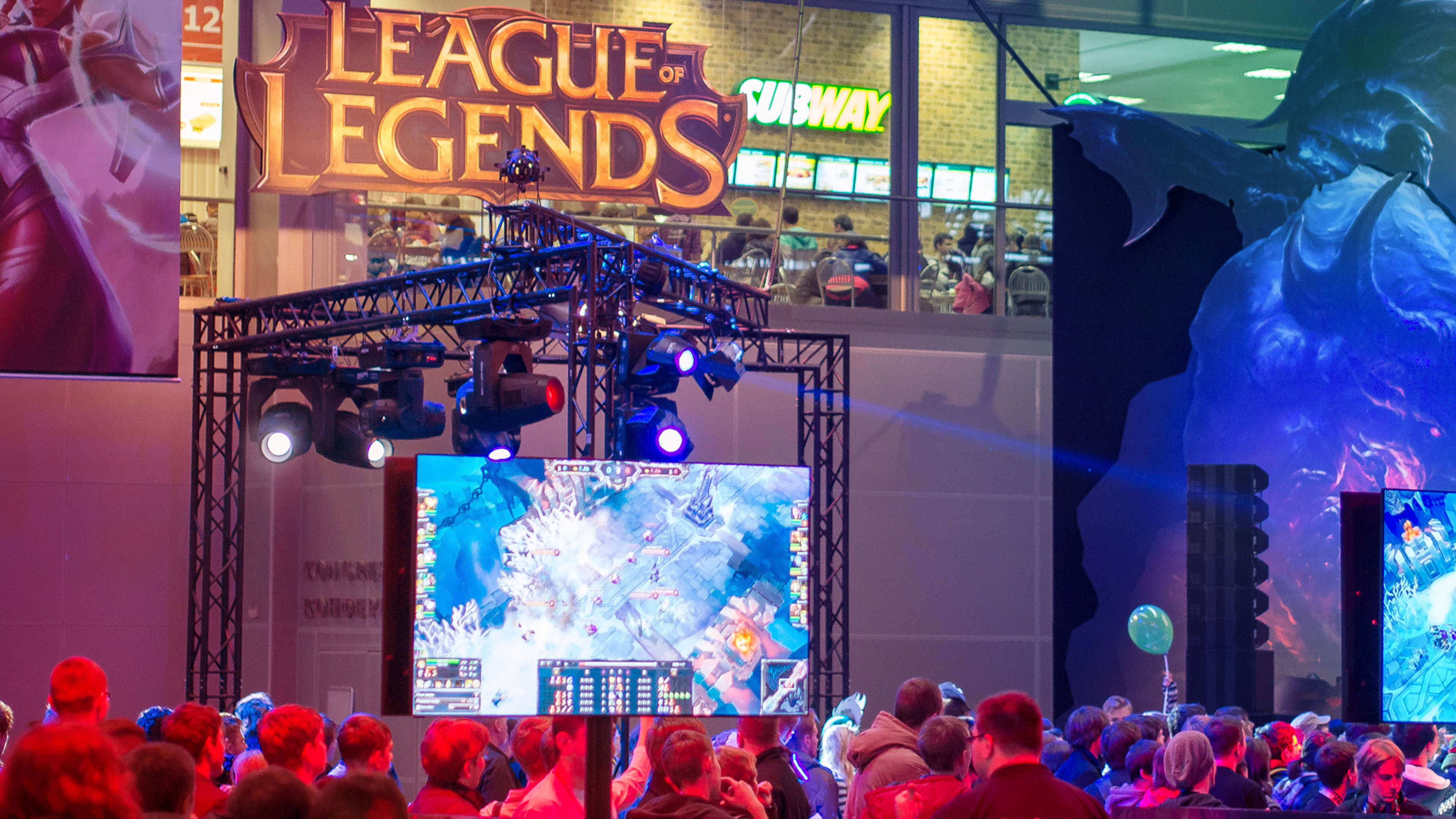Mastercard has signed a multi-year partnership deal with Riot Games to be the first exclusive global payment services partner of League of Legends (LoL) global esports events. It’s League of Legends’ first-ever global brand partner. The deal includes LoL esports’ three annual global tournaments, the Mid-Season Invitational, the World Championship, and the All-Star event. Mastercard will be developing special in-game benefits for fans who use their Mastercard, as well as special ticketing programs and offers for fans ahead of the live event tournaments. The company is also hoping to launch a collection of LoL-branded credit cards in the coming months.
“It’s a landmark deal for us, and I think the industry as a whole,” says Riot Games’ head of global esports partnerships Naz Aletaha.
“This is the first major entry of any global brand in esports, so we had to research all angles, all implications and consequences,” says Mastercard CMO Raja Rajamannar. “One of the most important things for us as well was the level of authenticity with which we had to come into this. League of Legends was one area we saw where we could jump in and curate experiences that were authentic.”
Esports are significantly different from more traditional sports, and not just because the players are sitting down and staring at a screen. There are scads of games and competitions to choose from. And while LoL is one of the largest esports competitions in the world, filling stadiums and attracting millions to watch online, Rajamannar says that its scale wasn’t the only consideration. “On one hand, they have tremendous scale–100 million players. Secondly, for a single event, the world championships, they had 80 million unique viewers. That is a mind-numbing number,” he says. “Third, it has got a significant component of millennials, which is critical to any company’s future. Lastly, we needed to be in an area where there wasn’t much graphic violence. This is a fantasy game, all about teamwork and sportsmanship.”
Mastercard is hoping that working with Riot on experiences like exclusively watching world championships rehearsal or VIP seats to watch an event with a pro gamer will get fans excited about the company’s involvement.
“Whenever we’re looking at any aspect of sponsorship, we look at impact on three levels,” says Rajamannar. The first is brand impact. Second is the impact on the business–is it going to drive up business in some scalable, measurable fashion? And third, does it give the brand any competitive advantage? “Different sponsorships provide different levels of each of these parameters. For this opportunity, it was pretty good on all three levels.”
Five years ago, Mastercard began reevaluating its overall marketing strategy. What they found was that people are gravitating more and more to experiences, and cutting through the clutter and making an impact on consumers through traditional PR and advertising was not going to be the wave of the future. “Advertising is dead in its current form,” says Rajamannar. “The future is all about story making, which is creating and curating experiences for customers and consumers. They narrate those experiences, they tell their own stories, and the brand is subtly embedded in those stories. As opposed to us throwing messages at our customers.”
Aletaha says the deal adds incredible momentum to the trajectory Riot Games has already been on. “Mastercard is obviously a non-endemic brand to the gaming space, but they have a history of supporting world-class sports and entertainment, like Major League Baseball, the Champions League, and the Grammys,” she says. “For them to recognize esports as their next big addition to the roster is a testament to what we’ve built.”
The new global sponsorship deal comes at a time when Riot Games could use some good news. In August, after an eight-month investigation, Kotaku published a story detailing a sexist corporate culture, which triggered the company’s internal investigation. However, as recently as last week, new reports have called Riot Games’ efforts inadequate. When asked to comment Riot Games told Fast Company via email, “We’re making change across the board to become a leader in diverse, inclusive, and equitable cultures. This process will take time, but we believe Riot Games will be a better place as a result.”
As for Mastercard’s take on the situation, a representative offered the following statement: “We expect those we do business with to operate under the highest ethical standards and practices. Riot has shared—publicly and with us—the steps they’re taking to address and correct these issues. This is an area where we will continue to stay close to understand their efforts.”
Recognize your brand’s excellence by applying to this year’s Brands That Matter Awards before the early-rate deadline, May 3.
